第41章 ANALYTIC OF AESTHETIC JUDGEMENT(8)
Nevertheless, with a view to the extension of imagination necessary for adequacy with what is unbounded in our faculty of reason, namely the idea of the absolute whole, the attendant displeasure, and, consequently, the want of finality in our faculty of imagination, is still represented as final for ideas of reason and their animation.
But in this very way the aesthetic judgement itself is subjectively final for reason as source of ideas, i.e., of such an intellectual comprehension as makes all aesthetic comprehension small, and the object is received as sublime with a pleasure that is only possible through the mediation of a displeasure.
B.THE DYNAMICALLY SUBLIME IN NATURE.
SS 28.Nature as Might.
Might is a power which is superior to great hindrances.It is termed dominion if it is also superior to the resistance of that which itself possesses might.Nature, considered in an aesthetic judgement as might that has no dominion over us, is dynamically sublime.
If we are to estimate nature as dynamically sublime, it must be represented as a source of fear (though the converse, that every object that is a source of fear, in our aesthetic judgement, sublime, does not hold).For in forming an aesthetic estimate (no concept being present) the superiority to hindrances can only be estimated according to the greatness of the resistance.Now that which we strive to resist is an evil, and, if we do not find our powers commensurate to the task, an object of fear.Hence the aesthetic judgement can only deem nature a might, and so dynamically sublime, in so far as it is looked upon as an object of fear.
But we may look upon an object as fearful, and yet not be afraid of it, if, that is, our estimate takes the form of our simply picturing to ourselves the case of our wishing to offer some resistance to it and recognizing that all such resistance would be quite futile.So the righteous man fears God without being afraid of Him, because he regards the case of his wishing to resist God and His commandments as one which need cause him no anxiety.But in every such case, regarded by him as not intrinsically impossible, he cognizes Him as One to be feared.
One who is in a state of fear can no more play the part of a judge of the sublime of nature than one captivated by inclination and appetite can of the beautiful.He flees from the sight of an object filling him with dread; and it is impossible to take delight in terror that is seriously entertained.Hence the agreeableness arising from the cessation of an uneasiness is a state of joy.But this, depending upon deliverance from a danger, is a rejoicing accompanied with a resolve never again to put oneself in the way of the danger: in fact we do not like bringing back to mind how we felt on that occasion not to speak of going in search of an opportunity for experiencing it again.
Bold, overhanging, and, as it were, threatening rocks, thunderclouds piled up the vault of heaven, borne along with flashes and peals, volcanos in all their violence of destruction, hurricanes leaving desolation in their track, the boundless ocean rising with rebellious force, the high waterfall of some mighty river, and the like, make our power of resistance of trifling moment in comparison with their might.But, provided our own position is secure, their aspect is all the more attractive for its fearfulness; and we readily call these objects sublime, because they raise the forces of the soul above the height of vulgar commonplace, and discover within us a power of resistance of quite another kind, which gives us courage to be able to measure ourselves against the seeming omnipotence of nature.
In the immeasurableness of nature and the incompetence of our faculty for adopting a standard proportionate to the aesthetic estimation of the magnitude of its realm, we found our own limitation.
But with this we also found in our rational faculty another non-sensuous standard, one which has that infinity itself under it as a unit, and in comparison with which everything in nature is small, and so found in our minds a pre-eminence over nature even in it immeasurability.Now in just the same way the irresistibility of the might of nature forces upon us the recognition of our physical helplessness as beings of nature, but at the same time reveals a faculty of estimating ourselves as independent of nature, and discovers a pre-eminence above nature that is the foundation of a self-preservation of quite another kind from that which may be assailed and brought into danger by external nature.This saves humanity in our own person from humiliation, even though as mortal men we have to submit to external violence.In this way, external nature is not estimated in our aesthetic judgement as sublime so far as exciting fear, but rather because it challenges our power (one not of nature) to regard as small those things of which we are wont to be solicitous (worldly goods, health, and life), and hence to regard its might (to which in these matters we are no doubt subject) as exercising over us and our personality no such rude dominion that we should bow down before it, once the question becomes one of our highest principles and of our asserting or forsaking them.Therefore nature is here called sublime merely because it raises the imagination to a presentation of those cases in which the mind can make itself sensible of the appropriate sublimity of the sphere of its own being, even above nature.